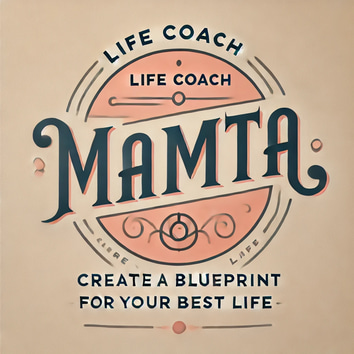Transform Your Life: Insights from Kaleidoscope Life Coaching
Explore the transformative journey of life coaching with Kaleidoscope. Discover expert insights, inspiring stories, and practical tips to enhance your personal growth. Join us as we delve into various coaching areas, share testimonials, and provide valuable resources to help you create a beautiful life filled with purpose and fulfillment.
5/8/20248 min read


"The Power of Pause: How Doing Nothing Can Be Your Secret Weapon"
Introduction
In today’s hustle culture, we’re taught that doing nothing is lazy. But what if pausing is the very thing that could make you more creative, resilient, and fulfilled? Here’s why taking intentional breaks might just be the most powerful productivity and wellness hack you’ll ever find.
1. Brain Recharge: Why Rest Fuels Creativity
Our brains need breaks. When we pause, we activate something called the "Default Mode Network," the brain’s way of processing information subconsciously. Studies show that during these pauses, we make connections we’d never notice otherwise. Ever had a brilliant idea come to you while showering or daydreaming? That’s the power of pause.
2. Stress Relief on Demand
Taking breaks triggers the "rest and digest" system in your body, which counteracts stress. Quick pauses, like a few minutes of mindful breathing, help lower cortisol levels and give your nervous system a chance to reset. In other words, intentional breaks let you dodge burnout and keep your mind clear and focused.
3. Becoming Your Own Observer
When you pause mindfully, you get a moment to check in with yourself. You can step back, notice your thoughts, and avoid knee-jerk reactions. This self-awareness leads to better choices and helps you align your actions with what truly matters. Pausing can actually make you more effective, not less.
4. Why Doing Nothing Leads to Breakthroughs
Sometimes, the best ideas come not from working harder but from letting your mind wander. This "mental incubation" allows your brain to make connections on its own. By pausing, you give your mind the space to solve problems creatively without forcing it. Sometimes, stepping back is what leads you to the next big thing.
5. Pause for Presence and Real Connection
When you’re always "on," you’re not fully present with others. Pausing lets you put down the phone, stop thinking about the next task, and truly connect with the people around you. It can be the difference between shallow interactions and deeply fulfilling relationships.
Conclusion
The power of pause is a radical shift from today’s relentless pace. It’s about reclaiming control over your time, creativity, and well-being. So the next time you feel overwhelmed, remember: doing nothing isn’t laziness. It’s your secret weapon for a more focused, fulfilled, and balanced life.


"The Art of Getting Lost: Why Losing Your Way Could Be Your Greatest Breakthrough"
Introduction
In a world that worships certainty and purpose, the idea of "getting lost" feels wrong. But what if getting lost—feeling untethered, unsure, or even disoriented—isn’t a mistake? What if it’s a gift? Here’s why losing your way might actually lead you to the most profound discoveries about yourself and life.
1. Breaking Free of the Control Illusion
We’re wired to crave control. But life isn’t as predictable as we’d like, and clinging to a rigid path often blinds us to new possibilities. Getting lost forces us to let go, adapt, and move forward without a safety net. It’s terrifying but freeing—an invitation to step beyond our comfort zone and discover the potential that lies outside it.
2. Building Mental Flexibility
When we let go of certainty, we sharpen our adaptability. Research shows that people who deal with uncertainty are better at problem-solving and embracing change. Getting lost gives you the chance to build mental agility and learn to face life’s twists and turns with grace and courage.
3. Raw Self-Discovery
Existentialists like Viktor Frankl believed that meaning comes to us most strongly when we’re thrown off course. Losing the usual markers—titles, roles, routines—allows you to see who you really are, without the “shoulds.” It’s in these raw, unfiltered moments that you meet your truest self.
4. Where Growth Begins
Every epic adventure begins with a character who’s lost. Think about it: in every great story, the hero must first wander before they find their way. Getting lost isn’t the end—it’s the beginning of an incredible journey. By embracing it, you open yourself up to unexpected adventures and the freedom to reimagine who you are.
5. Finding Beauty in the Unknown
Being lost helps you see beauty in unexpected places. Without a fixed destination, every detour becomes an experience worth savoring. Life stops being a straight line and becomes an unfolding journey. The more you embrace getting lost, the more you’ll discover the hidden magic all around you.
Conclusion
Getting lost can feel disorienting, but it’s also a powerful path to growth and discovery. So the next time life throws you off course, lean into it. Embrace the journey, trust the process, and remember: you might just find your true self along the way.




"Why Your Comfort Zone is a Trap (And How to Break Free)"
Introduction
Everyone loves the idea of a comfort zone. It’s safe, predictable, and, well, comfortable. But what if your comfort zone is actually more like a cage—a place that keeps you from growth, fulfillment, and your potential? Here’s the truth: the longer you stay comfortable, the more you might miss out on a life that could blow your mind. Let’s dive into why your comfort zone is secretly holding you back and how to break free, one small step at a time.
1. The Science of Stagnation: Why Comfort Can Hold You Back
Research shows that the brain craves familiarity, which is why staying comfortable feels so good. But over time, this craving for routine can lead to mental and emotional stagnation. The brain thrives on novelty and challenge; when you never push past your comfort zone, you deny yourself the chance to create new neural pathways that build resilience, creativity, and adaptability.
2. Growth Lives in Discomfort
Imagine a caterpillar deciding it’s just too cozy inside the cocoon and refusing to leave. Ridiculous, right? Growth requires discomfort, plain and simple. When you step into unfamiliar territory, you force yourself to adapt and learn new things, which is exactly how you grow stronger, more capable, and more aware of what you’re really made of.
3. The Fear of Failure Trap
One of the main reasons people stay in their comfort zone is the fear of failure. But here’s a secret: failure is one of the best things that can happen to you. When you fail, you learn, recalibrate, and come back stronger. Avoiding failure by staying comfortable might keep you safe, but it also keeps you small. Real growth happens when you take risks and find out that failing isn’t the end of the world; it’s actually a stepping stone.
4. Micro-Challenges: The Easy Way Out of the Comfort Zone
Breaking out doesn’t mean you have to quit your job tomorrow or backpack across a foreign country. Start small. Try micro-challenges: tiny, manageable risks that make your comfort zone a little bigger each day. Speak up in a meeting, take a new route to work, or try a new skill. Micro-challenges build confidence and prove that change isn’t as scary as it seems.
5. Redefining Comfort: Embracing the Unknown
What if you could reframe your idea of comfort itself? Instead of seeking safety, try finding comfort in the act of exploration, in seeing the unknown as a playground instead of a threat. This mindset shift doesn’t mean the fear goes away, but it does mean you’re no longer controlled by it. You start to see every new experience as a piece of your story, one that keeps evolving as you do.
Conclusion
Your comfort zone might feel safe, but it’s not where growth lives. Breaking out is a choice—a decision to live more fully, take risks, and make mistakes that lead to a richer life. So, the next time you feel the pull of comfort, ask yourself: what’s the worst that could happen? And then, what’s the best?


"The Secret Power of Play: Why You Should Take Life Less Seriously"
Introduction
Somewhere between childhood and adulthood, many of us forget how to play. Life becomes about responsibilities, deadlines, and “adulting,” and play seems frivolous or even silly. But what if embracing play—fun for fun’s sake—is actually one of the most powerful things you can do for your mental, emotional, and even physical health? Here’s a guide to bringing play back into your life and why it might just be the secret to living fully.
1. The Psychology of Play: How It Boosts Creativity and Resilience
Play isn’t just for kids; it’s hardwired into our brains as a tool for learning, creativity, and problem-solving. Studies show that play stimulates the brain’s prefrontal cortex, which is responsible for creativity and emotional regulation. When we allow ourselves to play, we tap into new ideas, solve problems differently, and approach life with a fresh, open mindset.
2. Reducing Stress by Embracing Lightness
When you’re constantly serious, life feels heavier than it has to be. Play brings lightness and humor back into the mix, allowing you to approach challenges with less stress and more ease. Laughing and having fun release endorphins, your body’s natural stress-busters. It’s like a reset button that lets you face your responsibilities from a place of balance rather than burnout.
3. How Play Helps You “Fail Forward”
Play has no real stakes, which makes it a perfect playground for failure. When you’re playing, there’s no “right” way to do things; the goal is just to enjoy. This freedom from judgment allows you to try, fail, and try again without fear. It teaches you resilience and helps you carry that “fail forward” mindset into other parts of life where fear of failure might be holding you back.
4. Rediscovering Play: Simple Ways to Bring Fun Back
Wondering how to add more play to your life? Start with small shifts. Try a dance break, take up a new hobby, or do something silly just because. The goal isn’t to be productive but to enjoy yourself. Join an improv class, play board games with friends, or spend a day exploring your city as if you’re a tourist. When you give yourself permission to play, you rediscover the joy of curiosity and exploration.
5. Play as a Path to Authenticity
When we play, we connect with our most authentic selves. There’s no mask, no role to fulfill—just you, fully engaged in the moment. This is a form of self-expression that allows you to connect with who you really are, beyond titles and expectations. Play reminds you that life isn’t just a list of tasks; it’s a journey meant to be enjoyed.
Conclusion
Play is more than just fun; it’s a profound tool for growth, resilience, and joy. By taking life a little less seriously, you make room for creativity, balance, and authenticity. So go ahead—give yourself permission to play. Your future self will thank you for it.




